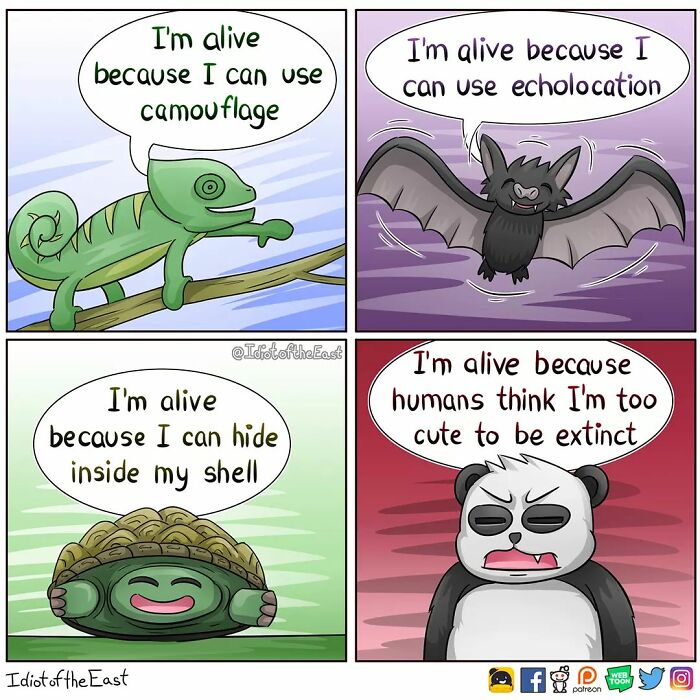this post was submitted on 11 Feb 2025
515 points (96.7% liked)
Comic Strips
14143 readers
2771 users here now
Comic Strips is a community for those who love comic stories.
The rules are simple:
- The post can be a single image, an image gallery, or a link to a specific comic hosted on another site (the author's website, for instance).
- The comic must be a complete story.
- If it is an external link, it must be to a specific story, not to the root of the site.
- You may post comics from others or your own.
- If you are posting a comic of your own, a maximum of one per week is allowed (I know, your comics are great, but this rule helps avoid spam).
- The comic can be in any language, but if it's not in English, OP must include an English translation in the post's 'body' field (note: you don't need to select a specific language when posting a comic).
- Politeness.
- Adult content is not allowed. This community aims to be fun for people of all ages.
Web of links
- [email protected]: "I use Arch btw"
- [email protected]: memes (you don't say!)
founded 2 years ago
MODERATORS
you are viewing a single comment's thread
view the rest of the comments
view the rest of the comments

I mean this is what I’m talking about with the beginning of my last paragraph.
https://pubmed.ncbi.nlm.nih.gov/25274274/
This study argues the exact opposite of what you’re saying and is generally accepted as evidence that most of what you just stated is a mix conjecture, exaggeration and misconception. Do you have reference for the evidence that says they’d go extinct?
The only really new thing in there is the genetic diversity. Some of that paper is a straight up thought experiment meant to persuade, not report findings. For example, the bit about flowering bamboo and how they must have endured thousands of such events in 8 million years. In rebuttal I would ask how do the authors of that paper know that the population hasn't been getting whittled down by such events, bit by bit. They make suppositions about ranging farther for food, but again provide no findings. There are multiple other problems with the paper, including mischaracterizing their own tables but I'll leave it there.
I will say that paper does a good job summarizing the position of people saying they will go extinct. By the way the full paper is freely available at Molecular Biology and Evolution. I would love to be wrong, they are very fun to watch. And if they can thrive with their habitats reconnected and protected then that's great. But I'm also not going to be surprised to find out it's just not in the cards.